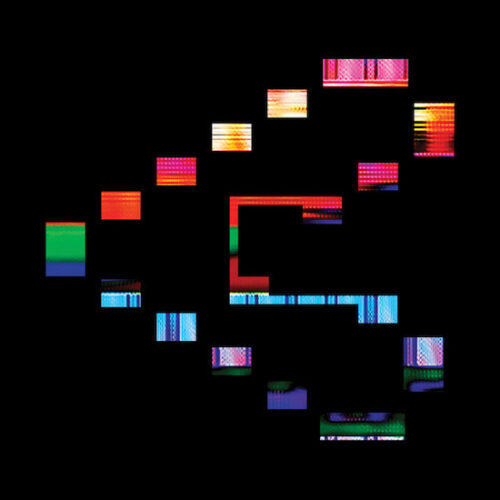When I first heard the music of Tom Jenkinson, AKA Squarepusher, as a teenager I was blown away by how fearless it was. It tapped into my love of ravey sounds coupled with frenetic drum ‘n bass breaks, basslines that made you smile and enough glitch to make you check that the CD was working correctly. This ability to mix brutalist acid with an avant-garde sensibility really excited me. The main albums readily available then were Hard Normal Daddy and Music is Rotted One Note. Hard Normal Daddy spoke to me more as it was fun and immediate, but there was something about the slow burn of Music is Rotted One Note that made repeat listens an absolute pleasure. On his latest album, Be Up a Hello, I’m struck by how those initial feelings still resonate. After twenty-four years Jenkinson can still transform a fully-grown adult into a gibbering open-mouthed teenager who can’t believe what he’s just heard.
Part of this reason is that Jenkinson has gone back to basics. His last album under the Squarepusher moniker, 2015s Damogen Furies, was created using software Jenkinson has taken over a decade to develop. Here he’s using the same equipment that helped hone his sound in the early 90s. Opening track ‘Oberlove’ feels like a lost track from Hard Normal Daddy. There is a playful euphoria going on behind big bouncy basslines. Given the rampant breakbeats, the synths are serene, with a feeling of contentment. It feels like Jenkinson is saying, “Yes, it’s been a while since I last put something out, but just sit back and let us get reacquainted.” Due to using vintage synths there is an immediateness to the songs, which mirrors their creation. Instead of having the ability to endlessly tinker with the electronic sounds, as he did on Damogen Furies. Using vintage equipment required parameters to be finely tuned to generate a given set of sounds, meaning that the tracks were finalised and recorded in a single take. This harkened back to Jenkinson’s original approach to song writing and the DIY rave scene he emerged from. ‘Hitsonu’ follows this straightforward vibe, but here and there are motifs of darker things to come. We don’t have to wait long as ‘Nervelevers’ and ‘Speedcrank’ are more fractured, reminding us that Jenkinson is still very capable of delivering nihilistic techno.
‘Mekrev Bass’ and ’80 Ondula’ end the album on a darker tone. Here Jenkinson is adding massive breakbeats to his Music is Rotted One Note blueprint and it sounds as innovative as it did in the late 90s. These final two songs are the standout moments on an album full of standout moments as Jenkinson mixes up sounds to create something exciting. Rather than following the same patterns, as some electronic artists are guilty of, Jenkinson wants to challenge himself – as well as us. There are times when it hasn’t worked out as well. Ultravisitor felt like a rare misstep, but you got what he was trying to do and went with it. On Be Up a Hello Jenkinson is back to his best and delivers something that sounds familiar, and classic, whilst being a totally audacious experience.
Be Up a Hello is Jenkinson’s strongest album for a decade and is easily up there with his best work. After the initial euphoric bounce of ‘Oberlove’ and ‘Hitsonu’, the album delves into classic territories. Wonky jazz and acid breakdowns all feature, making Be Up a Hello feel like a greatest hits album. And in a sense it is. In a perverse way, by using the same equipment he started out with, Be Up a Hello feels like his debut 2.0. He’s taking everything he’s learned over his twenty-four-year career and putting it to use with his original gear, making for an album that has hints of nostalgia, but none of the awkwardness.






